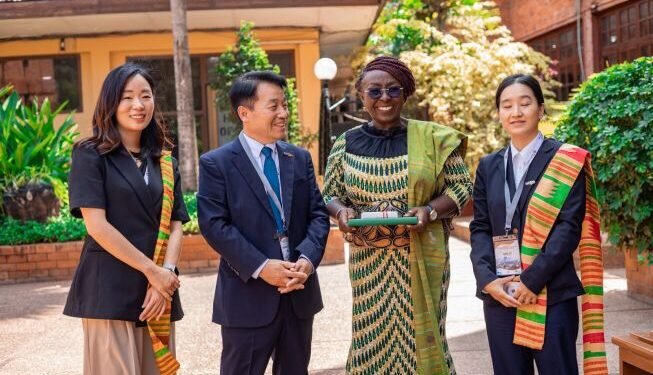Banking Consultant, Dr. Richmond Atuahene, has issued a strong warning against proposals for the Bank of Ghana (BoG) to allocate a portion of banks’ statutory reserves to support the operations of local cocoa purchasing companies.
The proposal, which he describes as a potential threat to Ghana’s monetary stability, was recently made by the Chief Executive Officer of COCOBOD, Dr. Randy Abbey.
The suggestion, which recommends diverting 2 to 3 percent of the Cash Reserve Ratio (CRR) to sustain indigenous cocoa buyers, has drawn widespread concern from financial experts who argue that such a move would dangerously undermine the core functions of monetary policy.
Dr. Atuahene emphasized that the CRR is a vital monetary policy tool designed strictly to ensure liquidity and stability within the banking system—not to fund private enterprise or support specific sectors of the economy.
“These are cedis that have been mobilized and locked at the Central Bank. They are meant to ensure there is always liquidity for banks to operate. If you divert these funds to purchase cocoa, you reduce the liquidity available to banks at the Central Bank.”
Dr. Richmond Atuahene
The CRR requires commercial banks to hold a certain percentage of their deposits with the central bank. These funds are unremunerated—meaning banks do not earn any interest on them. They serve as a financial buffer that supports banking operations and stabilizes the country’s financial system.

Unpaid Funds Should Not Be Deployed for Commercial Use
Highlighting the zero-yield nature of the reserve, Dr. Atuahene questioned the logic behind repurposing these idle funds for commercial transactions such as cocoa purchases.
“Let’s be clear. When the Bank of Ghana requires banks to hold a certain percentage of deposits as reserves, it does not pay interest on those funds. So are we now suggesting that money which banks are already not earning interest on should be handed over for cocoa purchases? I strongly disagree.”
Dr. Richmond Atuahene
He cautioned that such a move could jeopardize the operational strength of the banks, noting that banks already face challenges maintaining optimal liquidity due to macroeconomic pressures, inflation, and interest rate volatility.
Tampering with Monetary Tools Erodes Policy Credibility
According to Dr. Atuahene, tampering with statutory reserves sets a dangerous precedent. He warned that compromising such a fundamental monetary policy tool to support a single sector could trigger a loss of investor confidence and disturb the broader financial ecosystem.
“Once you begin diverting CRR funds from the Central Bank to fund private enterprises, where does it end? Tomorrow it could be the pharmaceutical sector, then the construction industry. This is a slippery slope that threatens the credibility of the Bank of Ghana’s monetary policy.”
Dr. Richmond Atuahene
He pointed out that the role of the BoG is not to directly fund commercial activities but to regulate and stabilize the financial system through instruments like the CRR. Using these reserves to provide liquidity for non-bank entities defeats the purpose of their existence.
Dr. Atuahene urged policymakers to seek sustainable and structurally sound alternatives for supporting the cocoa sector without compromising the country’s macroeconomic framework. He acknowledged the importance of indigenous cocoa buyers but insisted that funding should come from dedicated government budget allocations, concessional loans, or development finance—not from essential monetary policy tools.
“Short-term solutions like this may appear attractive,” he said, “but in the long term, they distort the financial architecture and expose the economy to greater risks.”
As the Bank of Ghana and government authorities deliberate on the proposal, it is crucial to uphold the independence of monetary policy and ensure that reserve requirements remain untouched—serving their intended purpose of protecting the financial system rather than being redirected to patch sector-specific funding gaps.
READ ALSO: Ofori-Atta’s Sickness is an Accountability-Avoiding Ruse – Hamza Suhuyini























